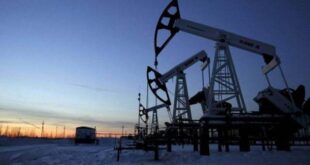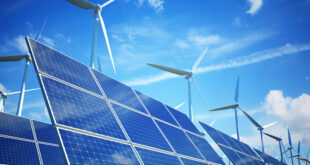Russian President Vladimir Putin said Moscow is ready to maintain gas supplies to Europe through Ukraine after the current gas transit contract ends in 2024.
The remarks came during German Chancellor Angela Merkel’s trip to Moscow, which is likely to be the last in her capacity as chancellor as she is due to step down from politics following Germany’s general election in September.
“We cannot draw up a transit contract if we do not have supply contracts for our consumers in Europe,” Putin clarified, speaking at a joint press conference following talks that lasted almost three hours.
He also assured Merkel that Russia would fully comply with its obligations on gas transit via Ukraine even after she steps down from her post as chancellor.
Merkel, in turn, said that during the talks with Putin she touched upon the appointment of Georg Graf Waldersee as a special representative, who will support negotiations between Russia and Ukraine on a ten-year extension of the current gas transit contract, which expires at the end of 2024. The commissioner is to mediate on both sides and also vis-à-vis the EU Commission, the US and possibly other states.
Graf Waldersee, formerly a board member of the auditing and consulting firm EY and currently a board member of the children’s charity UNICEF in Germany, has experience with mediation between Moscow and Kyiv. He was already involved in the negotiations on the current transit treaty in 2019 and, according to various sources, played an important role in the talks.
The appointment of a special envoy is a part of obligations Germany took under the deal reached with the US last month. After years of opposition, Washington reached an agreement with Berlin to allow the completion of the Nord Stream 2 underwater gas pipeline, which would bring Russian natural gas to Europe and bypass traditional overland routes that run through Ukraine.
Under the deal reached with Washington, Berlin pledged to confront Russia via sanctions and other tools if it uses energy as a weapon “to achieve aggressive political ends.” The agreement also lays out a new US-Germany Climate and Energy Partnership that will focus on reducing reliance on Russia for energy, by speeding up the green transitions of countries in Central and Eastern Europe. In addition, the deal offered new help to Ukraine, which opposes Nord Stream 2, to strengthen and modernize its energy sector and ensure reverse flows of gas to the country if Russia tries to cut off supplies.
The pair’s talks came as the construction of the $11-billion Nord Stream 2 gas pipeline nears completion. According to President Putin, there are just 15 kilometers (9.3 miles) left to complete the pipeline.
The pipeline has faced fierce opposition from US critics who claim it will increase Europe’s dependency on Russia for energy imports. At the same time, Washington has been pushing officials in Europe to abandon the project and instead purchase American liquefied natural gas (LNG) as an alternative.
Russia, as a leading global exporter of natural gas, is one of the major energy suppliers for Europe’s ever-growing demand. As a major transit country for Russian gas supplies to Europe, the government of Ukraine is worried that Moscow could stop gas supplies through its territory, leaving it without $3 billion in transit revenues annually.
Critics in Kyiv say that the construction of the new Baltic Sea pipeline threatens European energy security, heightens Russia’s influence and ultimately means the Ukrainian government will no longer collect transit fees from Russian gas exported to Europe.
Tags Caspian News.com Nord Stream 2 Russia Ukraine Vladimir Putin
Check Also
U.S. Drilling Activity Slips
The total number of active drilling rigs for oil and gas in the United States …
 Iran Energy News Oil, Gas, Petrochemical and Energy Field Specialized Channel
Iran Energy News Oil, Gas, Petrochemical and Energy Field Specialized Channel



